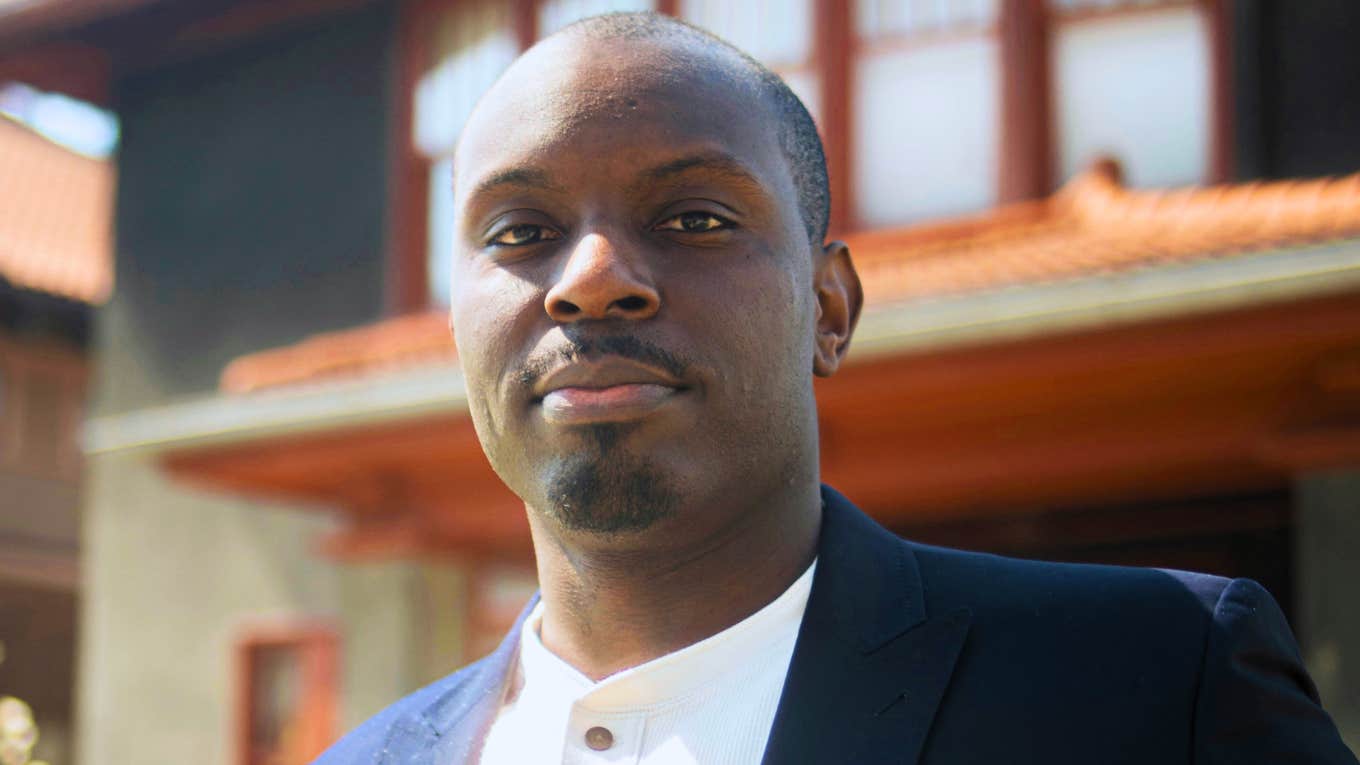To Save A Ton More Money, Avoid These 5 Common Financial Mistakes
Financially illiterate people often make these money mistakes.
 Troy Spoelma | Unsplash
Troy Spoelma | Unsplash Finances are the only topic of conversation that never gets old. Everyone is always interested in making and managing money. And they always will! It’s in our nature! Providing, being abundant.
There’s a reason our species was pre-historically called “hunter-gatherers.” It’s because we like to gather, to collect, to have! It offers us security, safety, and status. And we all know how much we starve for those.
However, most people are financially illiterate and make common financial mistakes. While this is one topic that never gets old and is always of utmost importance to people, it’s not directly taught in schools, which ultimately creates generations that are unprepared and inefficient when it comes to their finances. The system creates literate people, who are financially illiterate.
To save a ton more money, avoid these financial mistakes:
1. Not taking the time to learn mindful spending
The first thing everyone should do with their finances is to start being aware of the flow of money into their lives. Don’t panic and start cutting out your coffees, or lock yourself in your house for a week to reduce spending.
Try to have a normal week, maybe even go a bit extra, have that coffee if you want, get the croissant you were craving, and order in on Friday night. Don’t exaggerate, but don’t hold back either!
You want to see how much you are spending on average in a week, but also to live comfortably, whatever that means for you. For some, it might mean a non-disputable massage every Sunday, a non-debatable Squash game, or an everyday artisan coffee at your favorite café. We still want you to be happy, that’s the ultimate goal.
Now, break down what you spent your money on, and see how you are doing. Most bank applications have a way of describing your spending in multiple categories.
2. Splurging without restraint
 Yuricazac / Shutterstock
Yuricazac / Shutterstock
Once you identified how much a normal week costs and what you spend your money on, let’s address some of those behaviors. Getting yourself into debt or spending too much money is sometimes not your fault.
It can be a medical emergency, a family situation, or any other unplanned situation. There are terrible events and losses people go through and nobody should be judged in those situations, not even by themselves. For most people though, getting into debt and poor financial management can be attributed to:
- Lack of patience
- Poor relationship with money
- Impulsive buying
I’ll give you some examples:
- I don’t need a new phone now but my friend got the new one and I can’t be the one with an older version.
- I’ve been on a city break already and I don’t have the budget for another one but some friends are going and I don’t want to miss it.
- I really like the BMW 3 Series and I have the budget for it, but I also like the 4 Series, which is out of my budget. But we only live once, I’ll get that.
- I finished my clothes spending budget this month, but I like that shirt. I’ll get it. I deserve to treat myself.
These are some of a lot of examples. As you can see, we tend to use the money and disregard our budgets, when feeling down or when looking after quick and instant gratification, to fix a bad feeling.
Now, what I call strategic spending helped me deal with this, and have a different outlook. It is basically doing or getting the thing but planning accordingly.
For example:
- I don’t need a new phone and don’t have the budget now. But I want it. I will analyze the budget and see when my spending will reduce and when I’ll have the capacity to buy it effortlessly. In three months. Is mine broken and I need it next month? OK, what spending from next month can I postpone, to make room for the phone.
- My friends are going on a city break but I just came back and don’t have the budget. Do I want to go or do I just have FOMO? If I want to go, can I change some future spending to accommodate it? If not, maybe you shouldn’t go.
- I like and have the budget for the 3 Series but I love the 4 series. Good! You have a goal to work towards! If you get into debt and suffer, you might not have the budget too soon for the 5 Series if you’ll like that next. Get the 3, be comfortable, save some more, and when you are comfortable for the 4 Series. There’s always going to be a car that you like that’s out of your budget. Take it gradually.
- You like that shirt! Great! Is it reduced? If it is not, then chances are you can still find it next month. If it’s reduced, you might be able to go ahead but reduce your clothing budget next month.
We are impulsive beings controlled by emotions. Take the emotions out of it for a second and find a solution. One of these methods should work:
- Postpone the spending if possible
- Debate its importance
- Understand the underlying feeling
- Stop being impulsive
- Spend it gradually
- Split the payment
- Reduce the spending budget for next month
- Reduce the spending this month if you know you will spend more next month
3. Not paying off your debts
If you already have debt, don’t worry, so does most of the population. Whether it’s student debt, a mortgage, a car payment, an actual loan, or a credit card, debt is the same.
First of all, we need to remove the stigma about debt. It’s not a villain. It’s the key element of growth and development. It might take you ten years to save the money to start a new business.
But if you take a loan, in ten years you might already have a successful business and would have paid the loan back. Apple, Amazon, and Netflix all work on debt.
Apple recently funded an investment of 90 billion using debt, although they have profit reserves of over 300 billion sitting around. Why not use those? Because you might need it fast and quick later.
My parents taught me young, in a country where everyone hated and avoided debt, to embrace it strategically and use it mindfully, so I don’t block my own money. However, there is a certain level of debt you should get to.
My rule is this: Check how much can you safely save in a year without being frugal. Take 70% of that at most. That’s how much you can pay in debt for that year. So if I can save 30k this year, I’ll be able to pay around 20k in debt this year at most. That means around 1.6k a month.
Now you can use online calculators, decide how many years are you willing to pay and that’s how much you can effortlessly borrow. If you already borrowed, or have debts already, focus on why I said to also have an extra 30% at least in savings.
You will use these to not get into more debt, or to pay more towards your monthly payment, choosing to either reduce the monthly payment of your debt or its length. Whenever you can, pay a bit more and I would recommend reducing the period.
4. Not knowing anything about your accounts
 fizkes / Shutterstock
fizkes / Shutterstock
Always get the best deal on your accounts. You should always research all these elements before opening an account:
- The bank
- The account types
- The taxes
- The savings APR% (if debit)
- The payback APR% (if credit)
For the credit card, you’ll want these features:
- APR as low as possible
- Longer payback period without applying any APR
- Benefits and Points
For the debit account, you’ll want these features:
- No overdraft fees or very low
- Decent overdraft amount
- No ATM costs
- Benefits
- No account fees
For both accounts, you’ll want to do these:
- Call to waive a late fee for a credit card immediately (might not be sent to the credit score)
- Call to increase your savings APR (if debit) if you are a longtime client
- Call to decrease your credit card APR if you are a longtime client
5. Not investing
Once you know what you spend, strategically plan it so that you can continue saving and pay off your debts correctly, you are ready to invest. Don’t jump into investing, send your money there this month, and then go into debt next month or stop saving then.
You should always invest an amount that does not mean you will sacrifice or go into debt. However, when you are comfortable enough to invest, you should do it. There are hundreds of options but I will tell you what I plan to do, although I can’t guarantee any results or that it is good at all.
- Save at least 30% of my income (that’s because my living expenses are considerably lower than my income)
- Choose an investment budget out of that saved money. I usually go for no more than 50% of the saved ones.
- 50% goes into a long-term ISA
- 25% into certain stocks and ETFs that I consider huge potential
- 25% into Crypto ( I know this is controversial but to each their own ). It can also be wines, whisky, or a Berkin bag
In conclusion, I hope this will help improve your performance. As the title specifies, most people don’t follow these rules, and their finances are in a tough spot. This happens to people from any background, with any kind of education and any kind of income.
Alexandru Lazar is a software engineer, entrepreneur, writer, and contributor to YourTango. He’s had articles on self-improvement, fitness, and wellness, featured on a range of Medium publications, as well as part of his Newsletter, Rise by 1%.

